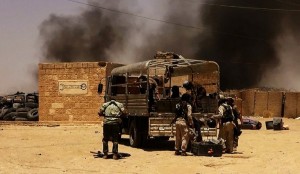Isil’s so-called ‘state’ can tax but how long can this extortionist system last?
The only positive bit about Isil’s tax-raising powers in its “state”is an entirely negative reality:
The people in its heartland in Iraq and Syria are becoming poorer by the day and there will come a time when they will be unable to scrape together anything of any value to give Isil.
We’ll come to the reasons for this in a minute, but first consider the following opinions in Foreign Policy by academics who’re tracking Isil and its finances quite closely:
Fawaz Gerges, a professor of international relations at the London School of Economics and Political Science, says that “In the last six or seven months, we have plenty of reports that show that ISIS is now squeezing the population” to a point where they can no longer keep up payments.
Adam Chodorow, a law professor at Arizona State University who has written about Isil’s ability to govern, adds that “They can go and take one or two of your goats, but eventually there are no goats left. I don’t think they’re going to be able to raise too much more money. They can extort, they can steal, but when it comes to a real tax system, they’re very limited.”
This is because the primary way that countries become rich is capitalism. Capitalism works best with stable money and low taxes.
A country can make money
: by selling something it grows or makes to others
: by selling bonds, which are basically an invitation to others to invest in its putative success
: by earning interest on loans to other countries
Isil’s so-called “state” does none of this except what the Russian envoy to the UN, Vitaly Churkin, called its illicit smuggling of oil through Turkey. As also taxing the sale of antiquities looted from the archaeological sites under its control.
Perhaps President Obama’s no-strategy strategy towards Isil is all about waiting it out and letting it run out of money?


